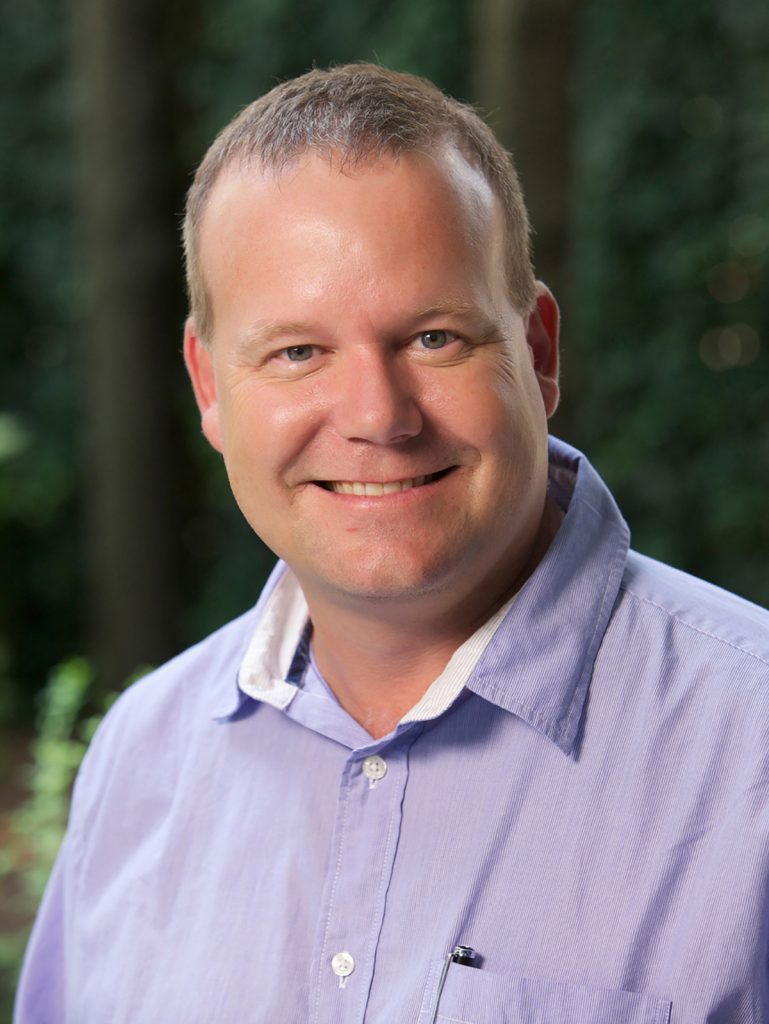For a man whose occupation requires him to study bones from thousands, even millions, of years ago, paleoanthropologist Lee R. Berger is remarkably future-oriented — and optimistic about humankind’s prospects, particularly as the millennial generation takes the lead.
“I see them with the greatest potential,” he said. “They have the power, for the first time in history, of engaging with everyone in the world, with every mind, almost instantaneously. Information and solutions are at their fingertips — if they don’t have it, someone else has it. And I think that they’re going to be the age that’s going to truly harness the wonder of technology.”
In his lecture at 10:45 a.m. Monday in the Amphitheater, Berger will imagine the future of humankind by tracing the extensive history of Homo sapien’s family tree.
“The field of human origins is changing at this unprecedented pace,” he said. “What I’m going to do is bring everyone up to the exciting, new discoveries, giving them a little bit of background on how those discoveries were actually made.”
Berger has had a hand in many of these new discoveries himself. A research professor in human evolution and the public understanding of science at the University of the Witwatersrand, Johannesburg, South Africa, and an explorer in residence at the National Geographic Society, he is known for working on excavations that unearthed previously unknown species Australopithecus sediba and Homo naledi, both extinct hominins found in the Cradle of Humankind, a World Heritage Site in South Africa.

Berger is also known for his rapid pace in publishing findings and presenting theories, which has often brought him critique as others in the scientific community question whether his enthusiasm is due to a love of the spotlight.
He is, however, committed to sharing information. He has made several of his discoveries, including sediba and naledi, open access, inviting other scientists to study the finds.
Berger believes that sharing his work is only fair.
“It’s the story of us,” he said. “This is the story of humankind and it deserves to be told.”
When he first entered the field of paleoanthropology, it “felt a little bit too much like a club,” he said.
“Often that clubbiness was used as a power that didn’t allow a meritocracy to actually occur in this scientific endeavor,” he said. “And when sediba came along, it offered me a large enough discovery that I felt I could experiment with something I believed in, which was open accessing, open sourcing, open collaboration.”
Part of Berger’s openness includes a public persona. He cultivates an active social media presence, was featured in the 2015 PBS NOVA National Geographic documentary “Dawn of Humanity” and in 2016, was named one of Time magazine’s 100 most influential people. But we’re all influential, Berger said, “arguably the most influential animal that’s ever lived in the history of this planet.”
“The next several decades, in fact, might be the point where we decide the future of biodiversity on this planet, what sort of world we want to live in and what sort of other creatures we’re going to share that with,” he said. “In order to understand our role in this system and also to understand where we come from and how connected we are to nature, the only place to learn that is in our past.”
Part of understanding the gravity of that past means accepting that humans are not “invincible,” Berger said.
“Our entire journey has been one of extinctions and losses through time. And understanding that journey is a powerful lesson,” he said. “There’s a lesson in our past about the fragility of our place on this planet.”
Berger said he’s looking forward to speaking at Chautauqua Institution, particularly to young listeners.
“It’s critically important to reach a younger generation as well, with the messages and the potential of scientific pursuit and exploration,” he said. “I really do believe that we are in the greatest age of exploration.”




